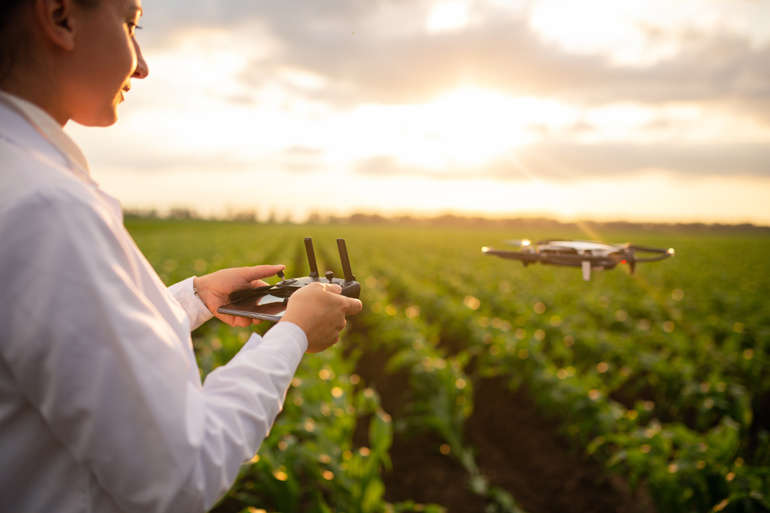Sustainable IT practices and green solutions have become essential components of business strategies worldwide, including in New Zealand and Australia. These practices involve reducing energy consumption, minimising e-waste, using renewable energy sources, and adopting efficient technologies to lower the environmental footprint. Both countries are making significant strides in this direction, with several companies leading the charge. In fact, New Zealand is one of the leading powers with regards to sustainable energy, with over 80% of electricity sourced from renewables, and a target of net-zero greenhouse gases by 2050.
How are New Zealand and Australia using and adapting tech to adhere to sustainability ideals?
Optimising renewable energy systems
- Software development: Coders in Australia and New Zealand are focusing on developing software to optimise renewable energy systems, including solar, wind, and hydroelectric power.
- Energy storage solutions: Improving energy storage to ensure a stable and reliable energy supply.
- Smart grids: Managing smart grids for efficient energy distribution across both countries.
Environmental data analysis
- Data analysis tools: Programmers are creating tools to aid in environmental data analysis, helping governments and organisations monitor natural resources.
- Climate change tracking: These tools assist in tracking the impacts of climate change, enabling better response strategies. The climate tech field has seen a huge 10% growth in job vacancies since 2022, and will continue to grow year on year as more regions integrate climate policy in their business strategies.
Smart city technologies
- Intelligent transportation systems: Implementing systems to optimise traffic flow and reduce emissions.
- Smart grids: Enhancing energy distribution efficiency in urban areas.
- Waste management: Developing efficient waste management solutions to lower urban carbon footprints.
IoT networks and environmental sensors
- Monitoring systems: Using IoT networks and environmental sensors to monitor air and water quality, deforestation, and wildlife populations.
- Ecosystem protection: Providing crucial data for conservation efforts in the Great Barrier Reef and New Zealand's forests.
Precision agriculture
- Drone-based monitoring: Implementing drones for monitoring crops.
- AI-driven crop management: Using AI to help farmers optimise resource use, reduce waste, and minimise environmental impact.
Blockchain and green finance
- Carbon trading: Developing blockchain solutions for transparent carbon trading.
- Green finance platforms: Creating platforms to support investments in sustainable projects across Australia and New Zealand.
Sustainable IT practices
- Optimising cooling systems: Efforts to improve the energy efficiency of cooling systems in data centres.
- Energy-efficient servers: Utilising servers that consume less power.
- Virtualisation techniques: Reducing the number of physical machines through virtualisation.
Electronic waste management
- Take-back programmes: Implementing programmes for the proper disposal and recycling of electronic waste.
- Partnerships with recyclers: Collaborating with e-waste recyclers.
- Longer life cycles: Designing products to last longer and reduce waste.
Cloud computing
- Efficient data centres: Cloud providers like AWS, Google Cloud, and Microsoft Azure operating more energy-efficient data centres than traditional solutions.
Green software engineering
- Optimising code: Ensuring that software applications run on minimal resources.
- Reducing high-power computing: Decreasing the need for high-power computing to lower energy consumption.
Companies leading the way
Datacom: Datacom, one of New Zealand's biggest tech companies, has been at the forefront of working with organisations from government agencies to SMEs to maximise their digital potential and adopt sustainable solutions. The company itself has invested in data centres running on 100% sustainable energy and focuses on minimising e-waste through its comprehensive recycling programmes.
Powerco: Powerco is New Zealand's second biggest electricity and gas company, investing in smart grid technology and innovative energy solutions. Their initiatives include integrating renewable energy sources such as solar and wind into the grid and enhancing energy storage solutions. Powerco is also focused on developing intelligent energy management systems to improve efficiency and reliability. Additionally, they use advanced data analytics to monitor energy distribution, ensuring sustainable and efficient use of resources.
Telstra: Telstra, Australia's largest telecommunications company, has set ambitious targets to achieve net-zero carbon emissions by 2050. The company has made significant investments in renewable energy projects, including solar and wind farms. Telstra's data centres are designed to be energy efficient, and they actively engage in recycling and repurposing electronic equipment, having recycled 632,919 mobiles, modems and other devices in FY23.
Xero: Xero, a global small business platform based in New Zealand, is committed to becoming carbon neutral by offsetting its carbon emissions and investing in sustainability projects. Xero has incorporated energy-efficient practices across its operations, including using cloud computing to reduce the physical infrastructure required and promoting remote work to decrease commuting emissions
If you’re interested in contributing to sustainable development through a career in tech, you’re in perfect time. Get in touch today.
